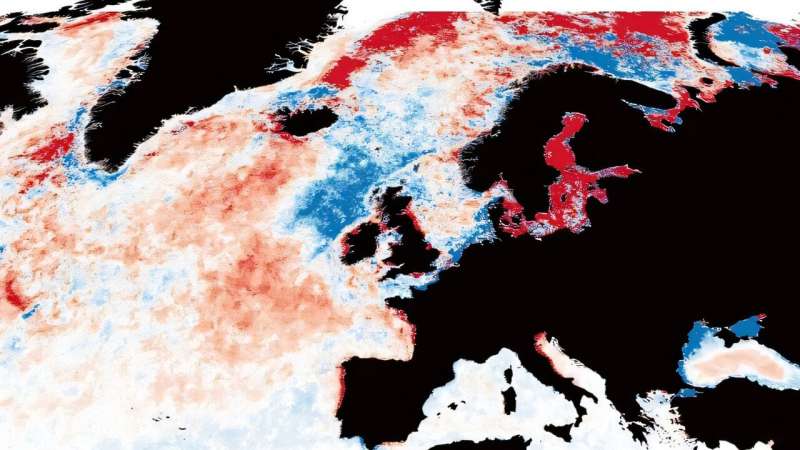More than one-fifth of global ocean has darkened in past 20 years – study
A large part of the world’s oceans has grown darker over the past two decades, according to a new study. Researchers found that more than 21% of the global ocean — an area over 75 million square kilometers, that is 7.5 times larger than Russia — has experienced a significant loss of light, shrinking a vital layer of ocean known as the "photic zone."
This zone is where sunlight can penetrate and where nearly all marine life depends on light to survive and reproduce.
The research, published in the journal Global Change Biology, shows that the depth of the photic zone has been retreating, especially in the open ocean and around the Arctic and Antarctic — areas already vulnerable to climate change.
More to read:
Jules Verne was right: Oceans are hidden beneath Earth
Dr. Thomas Davies, associate professor of marine conservation at the University of Plymouth, explained in a statement that the team behind this study used 20 years of NASA satellite data combined with ocean light models to track the changes.
The results showed that in 9% of the ocean — roughly the size of Africa — the depth of the photic zone dropped by more than 50 meters. In 2.6% of the ocean, the decrease was even steeper, with depths shrinking by more than 100 meters.
While some areas — about 10% of the ocean — have become lighter, the overall trend is troubling.
More to read:
Africa is splitting to form a new ocean
There has been research before about changes in ocean color due to plankton, but this study gives scientists solid evidence that large parts of the ocean are getting darker, said Davies. He warned that animals that rely on sunlight and moonlight to feed, breed, or navigate now have far less usable habitat.
Professor Tim Smyth, a marine biogeochemist at the Plymouth Marine Laboratory, emphasized that light is a key part of the ocean's ecosystem.

A map focused on the UK and North Atlantic Ocean showing changes identified through the project. Credit: University of Plymouth
Many marine animals are highly sensitive to changes in light and if they’re pushed closer to the surface because the light-rich zone is shrinking, they’ll face more competition for food and space, he noted, adding that this fact leads to big changes in how marine ecosystems function.
More to read:
Scientists discover life beneath the ocean floor
The exact reasons for the darkening vary by region. Near coastlines, increased sediment and nutrients — often from agricultural runoff or heavy rains — can cloud the water and block sunlight. But in the open ocean, the causes are more complex. The researchers believe changes in plankton populations, water temperature, and ocean circulation patterns all play a role.
While the study isn’t directly linked to artificial light pollution — another field Davies and Smyth have studied — it does reflect the increasing pressure human activities are placing on the ocean.
Davies stated, “The ocean’s photic zones are critical for producing the oxygen we breathe, supporting the fish we eat, and helping regulate the climate. The shrinking of these light zones is a real warning sign, and we should be deeply concerned.”







